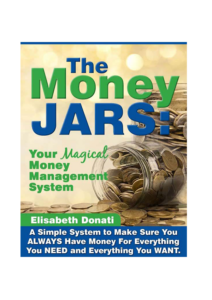In her Time Magazine article, How to Teach Kids About Money (Jan. 12, 2010) which isn’t really what the article was about to begin with), Barbara Kiviat talks about the fact that teaching financial literacy to kids doesn’t work and why. Lewis Mandell, who evidently has ‘studied’ financial literacy programs for 15 years, says, “We need to figure out how to do this the right way.”
Hello! There is a right way and I’ve been doing it for years. Want to know why financial literacy programs don’t work? I’ll tell you…because they are BORING and IRRELEVANT to the kids who are being forced to sit through them.
You see, most education is taught using auditory methodology, i.e., the teachers attempt to teach by ‘talking’ to students who are supposed to be sitting in their desks paying attention. The main problem with this situation is that less than 11% of us learn by listening. We learn primarily by seeing and by doing which is commonly referred to in Accelerated Learning as Visual and Kinesthetic.
When you examine how the majority of financial literacy programs and curriculums are presented to kids and teens, it is taught AT them; not presented in fun or entertaining and hardly ever is it taught through kinesthetic methods. It is not relevant to them yet and they are simply bored with the whole idea. Not a good context to teach what is perhaps the most ‘valuable’ information and life-skill they need to succeed in life.
So to ANSWER the question that Barbara asks in her headline, How to teach kids about money, here’s what you do…
First, and foremost, you stop talking about it and have kids experience what it feels like to get paid, have taxes taken out of their paychecks before they receive them, make them pay of adult expenses and stage events like car crashes that eat up their savings (the lesson: never let your account get to zero!).
Children must practice ‘paying themselves first’ so that they can experience the thrill of investing in their first asset which then pays them passive income (money they don’t have to trade their time and energy for) for as long as the asset is viable. After all, financial freedom does not come from having a steady paycheck or saving; financial freedom is the result of having enough assets paying you more than enough money to live the lifestyle you want for as long as you want.
Have teens experience what it’s like to invest in real estate, a business and the stock market and know that sometimes these ‘three pillars of wealth’ make you money and sometimes they doesn’t. It’s just part of being able to pave your own way in life so you never have to work for another human being unless you want to.
Our current education systems, for the most part, is busy creating mediocre-quality employees and soldiers who do as they are told and yet we continue to hear the outcry of, “We must create more jobs!” It’s entrepreneurs who are empowered with the knowledge and skill to go for it, be their own bosses, think outside of the box that are going to create all those jobs; not the 22-year old college graduate who was been brainwashed by an ignorant society that still believes that college is ‘the’ way to a successful life instead of simply ‘a’ way.
Next, you put children and teens in charge of a percentage of the money that is used to raise them. Instead of parents spending money ON their children, they a portion of that money THROUGH them. This way they get plenty of financial practice before they move out and their financial choices really matter. Let’s face it, no practice, no skill and we all know where no financial skill has gotten us as a nation.
Next, as adults, we must recognize the power of practicing what we preach and start setting the best financial responsible example we can for our children. We can not tell them to do one thing while do another. Our largest role model, the federal government (an Uncle at that) regularly spends more money than it brings in and that speaks volumes about whether or not you can live life living on more than you make. If it’s OK for Uncle Sam, why isn’t it OK for our kids as well?
Lastly, we stop making money mean something about who we are as human beings. Money doesn’t make us smarter or better or thinner or more worthy. Money simply makes us more of what we already are.
The Bottom line…the sooner we teach our children that money is simply a tool to reach their dreams AND we start modeling the habits, choices and behavior that leads to financial security, the sooner we can go from a society that is financially stressed and in debt to a culture that is financially responsible and secure.




0 Comments